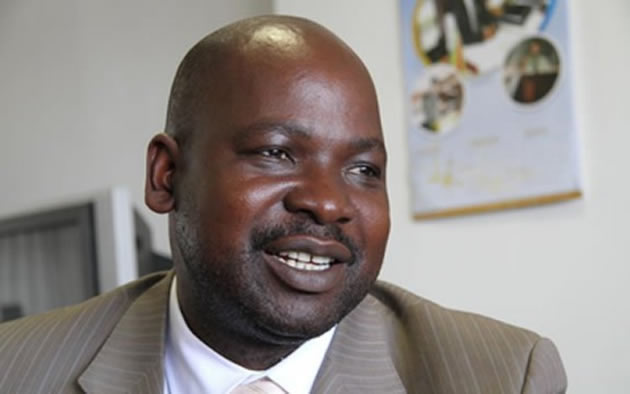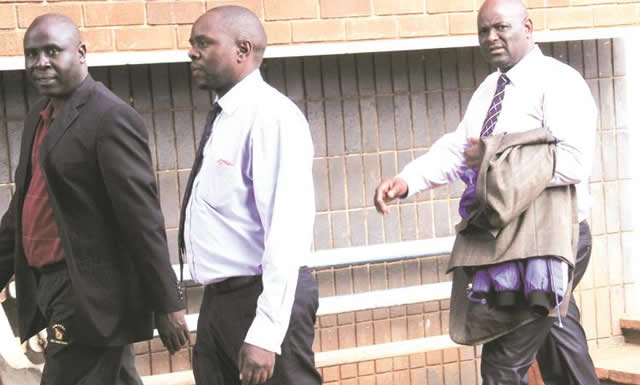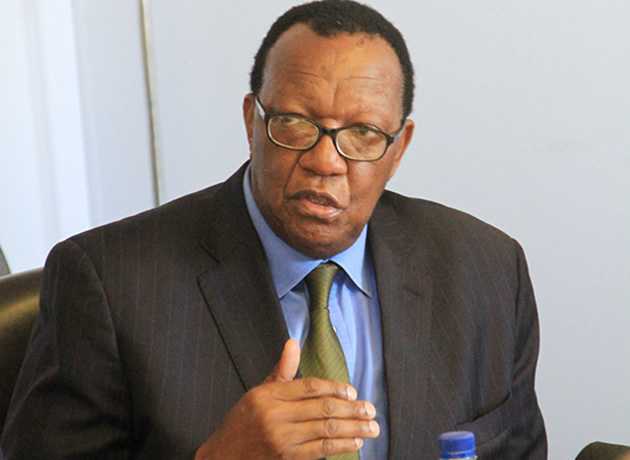JSC concedes to Tomana’s Concourt referral

Fidelis Munyoro Chief Court Reporter
The hearing into Prosecutor-General Johannes Tomana’s request for a judge outside High Court to hear his interdict application commenced yesterday with the Judicial Service Commission conceding to have the matter referred to the Constitutional Court.
Tomana, last month, filed an urgent chamber application at the High Court to stop JSC from continuing with the process leading to his possible removal from office. He wants that challenge to be heard by a retired High Court judge or any judge not sitting in the higher court.
JSC lawyer Mr Addington Chinake of Kantor and Immerman told Justice Lavender Makoni that his client was not opposed to the referral of the matter to Constitutional Court, but denied that a correct procedure had been followed.
Read more:
- Tomana saga heads to Concourt
- Tomana’s request lacks merit — JSC
- Tomana wants foreign judge
- NPA nullifies Tomana decision
- Tomana not fit to be PG: JSC
- Tomana court order’s validity challenged
He said the matter should not have been brought in the form of an urgent application. In his argument, Mr Chinake placed reliance on the provisions of Section 175(4) of the Constitution.
“In terms of Section 175(4), it is not necessary to make a formal chamber application for the referral in the form of an application in order to have the matter referred to Constitutional Court,” said Mr Chinake.
“If a constitutional matter arises in any proceedings before a court, the person presiding over that court may and, if so requested by any party to the proceedings, must refer the matter to the Constitutional Court unless he or she considers the request is merely frivolous or vexatious,” he added, quoting the proper section of the supreme law.
He said where a constitutional issue arises in the matter, the court was bound to refer the case to the apex court. Mr Chinake also brought before the court a notice of what he termed — a 15-point constitutional issues his clients want referred to the apex court for determination.
He again based his argument on section 175(4) of the Constitution for the court to decide his request on the basis of whether it was frivolous or vexations. He said the issues he raised could not be said to be frivolous and vexatious considering the nature of the matter at hand.
Advocate Thabani Mpofu, who is appearing for Tomana, strenuously opposed the notice saying Mr Chinake’s attempt to bring a notice in application proceedings defied logic and lacked substance at law.
He said if a chamber application filed, like in the case and the respondents desired their own relief contrary to the one sought by applicant, the procedure to follow was set out under Rule 2229A of the High Court.
“In terms of the rule they can file a counter chamber application,” said Adv Mpofu.
“This procedure is unknown at law. This court is bound by its own rules and there are many case authorities to that effect. The highest court has made several detailed judgments on the procedure to be followed when one seeks to approach the Constitutional Court.”
Adv Mpofu also differed with Mr Chinake’s interpretation of provisions of Section 175(4) of the Constitution.
He said the section allows any person alleging violation of rights as enshrined in the Bill of Rights to make a request for referral to the Constitutional Court.
However, the hearing was stopped mid-way after it emerged that the Attorney-General’s Office had not been served with the JSC’s notice.
AG’s counsel Ms Fortune Chimbaru said she was not aware of the notice produced by Mr Chinake.
She said she could only respond to the document after studying it and needed time for that. Justice Makoni agreed with the parties to adjourn the hearing to April 14 for continuation.
Tomana faces possible removal from office due to non-compliance with court orders. He is facing criminal charges at the Harare Magistrates’ Courts involving the attempted Gushungo Dairy bombing, was in October last year slapped with a 30-day term of imprisonment for contempt of court after he defied court orders to issue certificates for the private prosecution of Bikita West legislator Munyaradzi Kereke and Telecel shareholder Jane Mutasa.
Kereke is accused of raping an 11-year-old relative, while Mutasa was facing charges of swindling the company of airtime recharge cards worth millions of dollars. Tomana was fined by a nine-member judges’ panel of the Constitutional Court led by Chief Justice Godfrey Chidyausiku.
The sentence was, however, wholly set-aside on condition that he complied with the court orders and issue private prosecution certificates to Mr Francis Maramwidze and Telecel, failure of which he would be barred from practising as a lawyer in Zimbabwe.









Comments